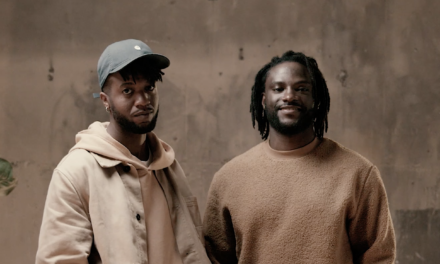Pride Month is a time when the LGBTQIA community comes together to celebrate diversity, acceptance, and love. While the achievements of this movement are commendable, it is essential to recognise the significant contributions of Black individuals in shaping and advancing LGBTQIA+ rights. Their intersectional experiences have often been at the forefront of the struggle for equality, making Pride Month a crucial moment to celebrate their accomplishments and amplify their voices
Black people have played a pivotal role in the LGBTQIA+ community, advocating for equality and challenging the systems of oppression that marginalise them. One notable figure is Marsha P. Johnson, an African American transgender activist who, alongside Sylvia Rivera, was at the forefront of the Stonewall Riots in 1969. The riots marked the beginning of the modern LGBTQIA+ rights movement. Johnson co-founded the Street Transvestite Action Revolutionaries (STAR) to provide support and shelter for homeless transgender youth, addressing the intersectional challenges faced by the LGBTQIA+ community.
Another influential activist is Bayard Rustin, an openly gay African American man who was a key advisor to Martin Luther King Jr. during the civil rights movement. Rustin’s work as an organiser and strategist was instrumental in the success of the 1963 March on Washington for Jobs and Freedom. Despite facing discrimination within the movement due to his sexual orientation, Rustin played a vital role in advancing the rights of both Black people and the LGBTQIA+ community.
In contemporary times, organisations like the National Black Justice Coalition (NBJC) have been at the forefront of advocating for LGBTQIA rights within the Black community. Founded in 2003, NBJC focuses on fighting racism and homophobia, and working towards full equality for Black LGBTQIA+ individuals. Through their advocacy and programs, the organisation amplifies the voices of Black queer individuals, addresses the unique challenges they face, and pushes for inclusive policies.
The contributions of Black LGBTQIA+ activists have also expanded the conversation around intersectionality. Kimberlé Crenshaw, a Black feminist scholar and legal advocate, coined the term “intersectionality” to highlight how multiple forms of oppression intersect and compound the experiences of individuals. This framework has been crucial in understanding the challenges faced by Black queer people and has prompted more inclusive activism within the LGBTQIA+ community.
Supporting the LGBTQIA community is crucial in creating a more inclusive and accepting society. Here are five real-life ways to demonstrate your support:
- Educate Yourself: Take the initiative to educate yourself about LGBTQIA+ issues, identities, and experiences. Read books, articles, and watch documentaries to gain a deeper understanding. By educating yourself, you can challenge stereotypes, debunk myths, and engage in informed conversations.
- Use Gender-Inclusive Language: Be mindful of the language you use and strive to be inclusive. Respect people’s chosen names and pronouns, and avoid assumptions based on appearance or stereotypes. Using gender-inclusive language helps create a more inclusive environment where everyone feels seen and respected.
- Be an Ally: Actively support and advocate for LGBTQIA+ rights. Attend Pride events, marches, and demonstrations to show solidarity. Use your privilege to amplify LGBTQIA+ voices and advocate for inclusive policies and protections. Stand up against discrimination and prejudice whenever you witness it.
- Support LGBTQIA-owned Businesses and Organisations: Directly contribute to the economic empowerment of the LGBTQIA+ community by supporting LGBTQIA-owned businesses. Seek out local LGBTQIA-owned establishments, buy their products, and utilise their services. Additionally, consider donating or volunteering for LGBTQIA+ organizations that provide support, resources, and advocacy.
- Foster Inclusive Spaces: Create welcoming and inclusive spaces in your personal and professional life. Challenge heteronormative and cis-normative assumptions and create an environment where people can be their authentic selves. Encourage open dialogue, respect diversity, and actively challenge discriminatory behaviour or language when you encounter it.
Remember, supporting the LGBTQIA+ community is an ongoing commitment that requires continuous learning, growth, and allyship. By taking these real-life steps, you contribute to the creation of a more inclusive and accepting society for all. As we celebrate Pride Month, let us honour and uplift the contributions of Black people to the LGBTQIA community. From the activism of Marsha P. Johnson and Bayard Rustin to the advocacy of organisations like the National Black Justice Coalition, their work has been instrumental in advancing LGBTQIA+ rights. By recognising and amplifying the voices of Black LGBTQIA individuals, we embrace a more inclusive and intersectional approach to activism. Let us continue to support and uplift these leaders, acknowledging their resilience, bravery, and determination as we work towards a more equitable and just society for all.












